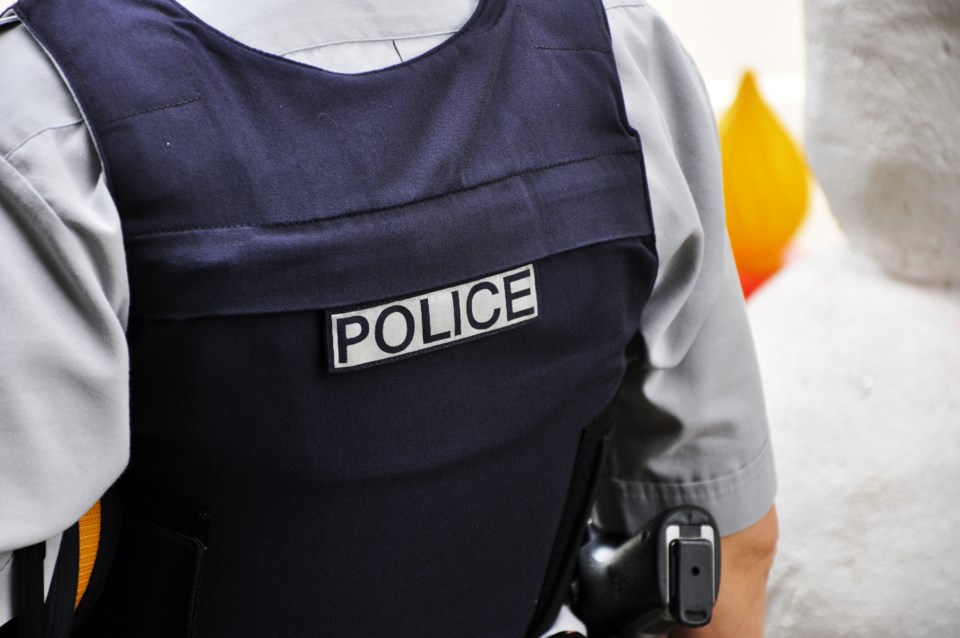Over the course of the pandemic, the Whistler RCMP has discussed its growing emphasis on what it calls “partnership policing,” a more proactive approach to law enforcement that sees the detachment collaborating with local non-profits and health providers.
But, according to Whistler Community Services Society (WCSS) executive director Jackie Dickinson, it is a strategy that was in use locally well before COVID-19 hit.
“I think it’s really interesting that now that’s become more formalized and we’ve added language to it, but honestly, I would say in my time working for Whistler Community Services, that’s the approach we’ve always had,” she said. “It’s always been an example of partnership policing, and I say that in a genuine way. We work with the Whistler RCMP on a variety of different initiatives, with a real focus and goal to always be looking at the well-being of the people we connect with.”
It speaks to a wider ongoing conversation about what role police should play in society, particularly in light of the continued spotlight on officers’ use of force, especially in marginalized communities. Increasingly, police have found themselves on the frontlines of mental health crises, often serving as first responders for vulnerable Canadians—sometimes with harmful or even deadly results.
While overall mental health-related occurrences for Whistler and Pemberton RCMP fell slightly from 289 in 2020 to 274 last year, 47 per cent of all the detachments’ mental-health calls in 2021 resulted in apprehensions.
There was also a 13-per-cent increase in mental-health flags, to 185 last year, part of a years-long rise dating back to at least 2016, when there were 60 mental-health flags in Whistler.
“There has been a lot of data over the last few years on the increased concerns about mental health and how police, health-care providers, and community provide support and respond to those in crisis,” explained RCMP North Zone Commander, Staff Sgt. Sascha Banks, in an email. “Whistler RCMP and BC [Emergency Health Services] are currently the only 24/7 support for those who are in crisis and we need to work with our partners … to provide a well-rounded service model and ensure that those in crisis in the Whistler community have all resources and support Whistler has to offer.”
One of the ways local police and their partners have been working to provide that all-around support is through something the RCMP calls a “hub model,” which sees law enforcement and local organizations such as WCSS and Vancouver Coastal Health sharing information and insights.
“The hub models elsewhere have been found to be very successful in providing these comprehensive and effective treatment plans for those to remain in the community and are in need of a longer-term plan to support them,” noted Banks, adding that the local detachment is also working on adding a specialized mental-health liaison position that would work with local health workers.
“If police and health work in silos and there is no transfer of information, a police mental health liaison dedicated position can bridge the gap, provide required training, and create essential relationships between the health resources and Whistler RCMP,” she said.
A program involving a mental-health liaison would be modelled in part off a similar initiative in Surrey and the Fraser Valley called Car 67, which see RCMP members working with clinical nurses to provide onsite emotional and mental health assessments, crisis intervention and referrals to appropriate services on certain calls.
With the loss of the WCSS’ crisis stabilization team in the pandemic, it’s the kind of program that’s needed in the Sea to Sky now more than ever, said Dickinson.
In its absence, a variety of local organizations have stepped up to fill the gaps the best they can, but “something like Car 67 would be a great option because when someone is in distress and needs help, there’s a variety of things they need,” she said.
A related initiative in development is a community response unit (CRU), a team of specially trained officers working with local partners such as the Gibbons Group to focus on specific areas of crime, a model already in place in the Lower Mainland.
“The difference between a frontline police officer and that of a CRU team is the CRU team can focus on an area without needing to respond to calls for service,” Banks said. “In Whistler this team would be a community police model mixed with a targeted team enforcement for property crime, violent crime … and the gang enforcement initiatives.”
Although likely a longer ways off, local police have also discussed the formation of a “social chronic offender” database of individuals who have “extensive contacts” with police.
“A social chronic offender may be someone who calls police constantly for unsupported or non-police-related matters, someone who police come into regular contact [with] on calls for service who struggles with homelessness, addictions, mental health, etc.” noted Banks. “It would allow for sharing of worker and support networks.”




